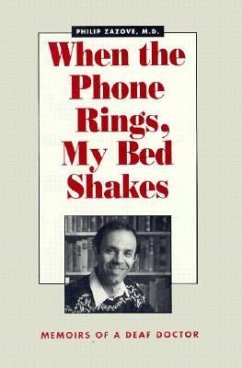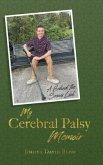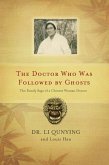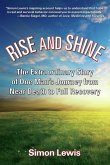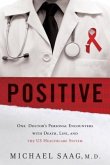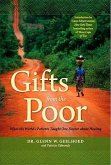At the age of four, Philip Zazove was speaking to his father, who turned away to replace some books on a shelf. "Daddy", Philip cried, "look at me when I talk!" His father replied, and Philip said, "What did you say, Daddy?" His father turned around and repeated what he'd just said, "Philip, I don't have to look at you to hear you". "Yes, you do. How else could you hear me?" The question led to extensive tests that confirmed that, except for minimal hearing in the lowest range, Zazove was essentially deaf. Yet, he went on to lead a very active childhood, excelling in academics and athletics, even though he had to overcome barriers and wage battles every step of the way. In a time when interpreters and notetakers were nonexistent, Zazove compiled an exemplary record in high school and at Northwestern University in preparation of achieving his lifelong dream. Having decided to follow in his parents' footsteps, both of whom were physicians, he intended to become a doctor himself. Despite his achievements in college, Zazove discovered that medical schools were not ready to welcome him with open arms. After enduring one rejection after another based upon his deafness and living with the frustration of seeing classmates with poorer records accepted at the same schools, he finally won entrance to Rutgers University Medical School. Again, he became one of the leaders in his class, making up for not hearing most of what was said in rounds with furious study, observation, and extra hard work. When the Phone Rings, My Bed Shakes in its very title hints at the kind of challenges that such ordinary things as hearing an alarm clock can present to a deaf person. On his way to becoming a respectedfamily practitioner (more new ground broken against the advice of his faculty), Zazove developed keen sensitivity to how his patients felt about their illnesses. Throughout his book, he relates anecdotes about his patients that evoke the full range of emotions related to life and death matters. Zazove's warmth and concern for his many patients occupy center stage for Zazove, understating his remarkable accomplishments both big and small to overcome deafness as merely the necessary means to be able to help people as a family doctor. His unassuming style makes When the Phone Rings, My Bed Shakes a thoroughly enjoyable and enriching journey that also demonstrates that deaf people can do everything if given the chance by a hearing society.
Hinweis: Dieser Artikel kann nur an eine deutsche Lieferadresse ausgeliefert werden.
Hinweis: Dieser Artikel kann nur an eine deutsche Lieferadresse ausgeliefert werden.

